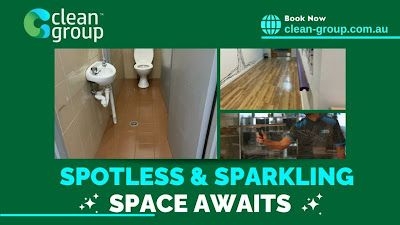
What makes Clean Group’s cleaning process top-notch?
Is Clean Group an ISO-certified cleaning company?
Despite physical demands and exposure to chemicals, the cleaning profession remains indispensable. Workers must master technical procedures and deliver excellent customer service, often under challenging conditions. As businesses increasingly incorporate cleanliness into brand identity and employee care strategies, the role of cleaners grows in scope and prestige.
As commercial cleaning companies become more integral to business operations, they must remain adaptable and proactive in addressing changing market demands. The growing need for high-quality cleaning, combined with an emphasis on health, safety, sustainability, and technology, presents significant opportunities for growth in the industry. By continuing to invest in training, innovation, and customer service, commercial cleaning companies can ensure that they remain competitive and capable of meeting the evolving needs of businesses across diverse sectors. As a family-owned business, Clean Group places a strong emphasis on building lasting relationships with clients. They treat every client like part of the family and go the extra mile to ensure satisfaction. Over the years, Clean Group has earned the trust of a wide range of clients, including leading brands across Kings Cross, NSW. Their dedication to customer service and commitment to high-quality cleaning has made them the go-to cleaning service provider for businesses in the area. Commercial Cleaning Kings Cross The reputation Clean Group has built over the years is a testament to its outstanding service. Many leading brands in Kings Cross trust Clean Group with their commercial cleaning needs. From small businesses to large corporations, Clean Group has demonstrated its ability to meet the cleaning demands of diverse industries. Their expertise in cleaning various commercial spaces ensures that every client receives tailored services that meet the unique requirements of their workplace.. In this way, the commercial cleaning industry will continue to be a vital component of the modern business landscape, supporting not only the cleanliness of spaces but also the health, safety, and well-being of all those who use them.
Another trend in the cleaning industry is the rise of automated cleaning technology. Robotic cleaners, such as robotic vacuums and window washers, have become increasingly popular in both residential and commercial settings. These devices use sensors, artificial intelligence, and machine learning to navigate and clean spaces with minimal human intervention. Robotic vacuum cleaners, for instance, can automatically detect dirt and debris, adjust their cleaning patterns to the layout of the room, and even return to their charging stations when necessary. In commercial spaces like hotels and offices, robotic cleaning equipment can perform tasks like floor scrubbing, sweeping, and even cleaning windows, enhancing operational efficiency while reducing labor costs.

